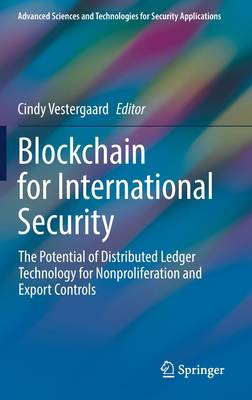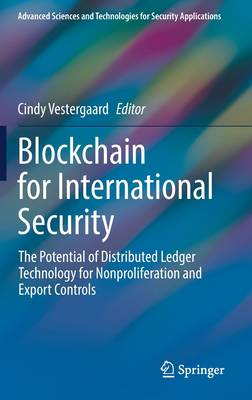
- Retrait gratuit dans votre magasin Club
- 7.000.000 titres dans notre catalogue
- Payer en toute sécurité
- Toujours un magasin près de chez vous
- Retrait gratuit dans votre magasin Club
- 7.000.0000 titres dans notre catalogue
- Payer en toute sécurité
- Toujours un magasin près de chez vous
Blockchain for International Security
The Potential of Distributed Ledger Technology for Nonproliferation and Export Controls
Description
This book intersects the distributed ledger technology (DLT) community with the international security community. Given the increasing application of blockchain technology in the fields of business and international development, there is a growing body of study on other use cases. For instance, can blockchain have a significant role in preserving and improving international security? This book explores this question in the context of preventing the proliferation of some of the most dangerous materials in the world-items that if not secured can lend to the development of weapons of mass destruction. It considers how blockchain can increase efficiencies in the global trade of nuclear and chemical materials and technology, thereby increasing assurances related to compliance with international nonproliferation and disarmament treaties.
Spécifications
Parties prenantes
- Editeur:
Contenu
- Nombre de pages :
- 107
- Langue:
- Anglais
- Collection :
Caractéristiques
- EAN:
- 9783030862398
- Date de parution :
- 26-10-21
- Format:
- Livre relié
- Format numérique:
- Genaaid
- Dimensions :
- 156 mm x 234 mm
- Poids :
- 353 g

Les avis
Nous publions uniquement les avis qui respectent les conditions requises. Consultez nos conditions pour les avis.





